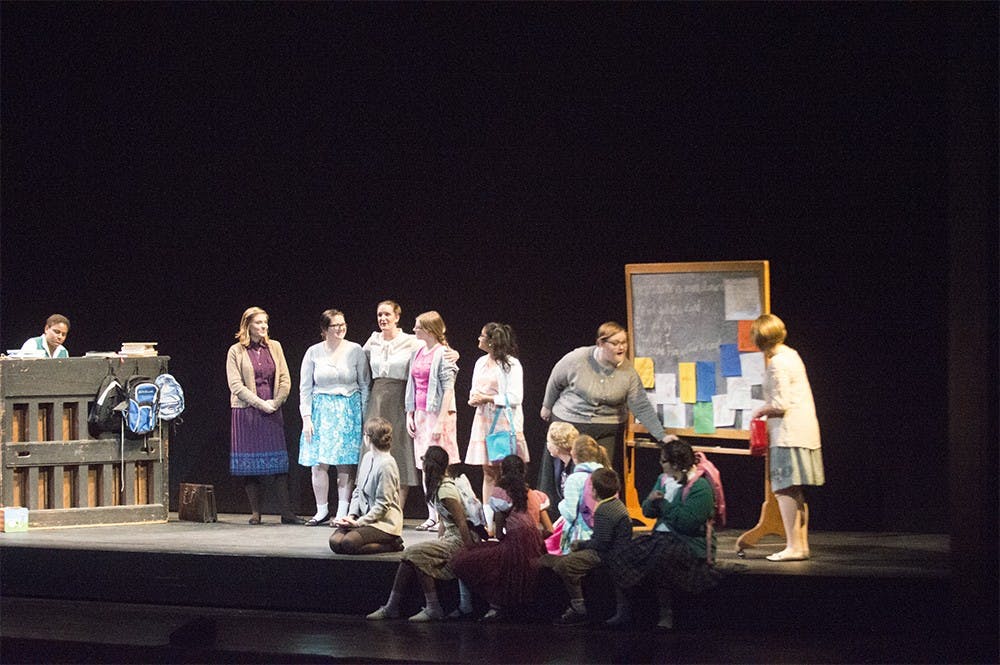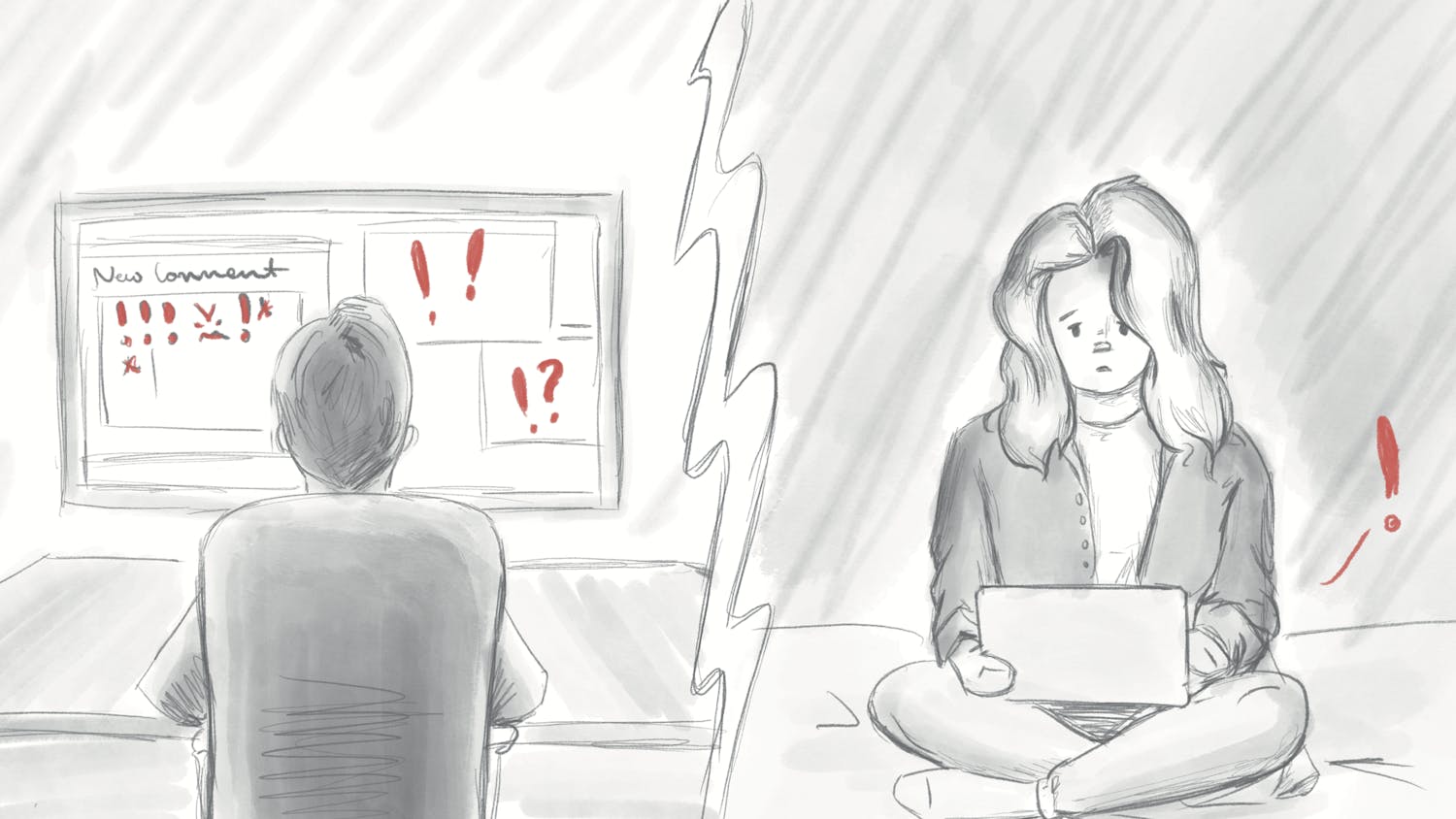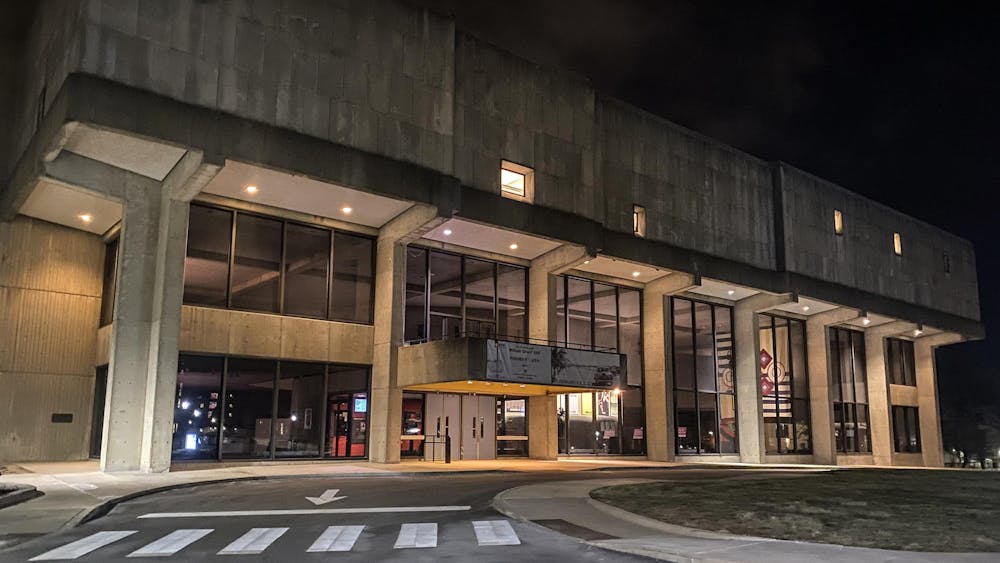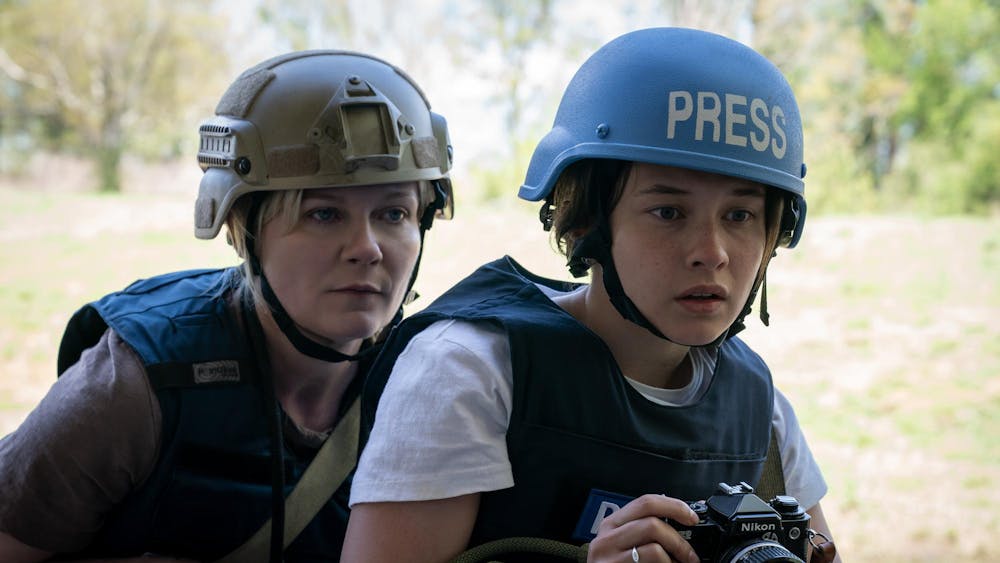Eric Smedsrud, a second-year master’s student in vocal performance, portrayed the brutal rape and murder of a young woman a few minutes before the official start of a dress rehearsal that intertwined both art and reality.
When 7 p.m. neared, violet curtains concealed the rotating set used in Jacobs School of Music’s Opera and Ballet Theater’s performance of “Dead Man Walking,” which premieres at 7:30 p.m. Friday in the Musical Arts Center. After the lights dimmed and the theater, which contained the alternate cast of the show, went silent, the curtains were raised once again to reveal the prologue scene that would condemn Joseph De Rocher.
The opera tells the true story of a nun who was determined to visit the imprisoned Joseph, convicted of killing a young couple and placed on death row. Despite warnings from others, Sister Helen Prejean drives to the Louisiana State Penitentiary and forms a friendship with Joseph.
Though under pressure from many directions to end her visits with the man, Sister Helen continues to speak with Joseph and urges him to confess his sins before he is executed.
Jose Maria Condemi, stage director of the production, said unlike the other operas this season, which were written in the previous century, “Dead Man Walking” is a relatively new opera.
Therefore, its subject matter remains pertinent in society today, he said.
“While the story depicted in ‘Dead Man’ is about a specific death penalty case in the 1980s, the larger topic of capital punishment is utterly relevant today,” he said in an email. “This is a great ‘first-timers’ opera because of the accessibility of the English language and the relevance of the topic.”
The reality of the story is clear to doctoral students in vocal performance Rachel Evans and Sarah Ballman, who alternate playing the role of Sister Helen Prejean. They will meet the real Sister Helen before her 4 p.m. Sunday lecture in the MAC.
“Rarely is there an opportunity to portray actual, real-life people in opera, and it is rarer still to have an opera whose central focus is a controversial issue that is relevant not only when the opera was written but also when it is being performed,” Evans said in an email.
Evans said her goal is to bring as much truth to the character of Sister Helen as possible. She said she strives to find the motivation and connection with the character to make the character’s choices honest.
“In my opinion, it won’t be moving for the audience if it isn’t real for me,” she said in an email.
Evans said the character of Sister Helen must be strong for everyone involved, which is one of the most challenging parts of the production: its highly emotional content.
She said it is overwhelming at times.
“Sometimes when I’m done performing the show, I want to just go somewhere and cry,” she said. “You feel for all the characters, but there’s really no absolute way to fix things.”
Smedsrud said the show takes both cast and audience on a spiritual journey that no other opera featured in this season explores.
He said the show is gritty, honest and shockingly real.
“I feel it’s important for me to be very real with it,” he said. “He’s still a human being, he’s just a human being that’s struggling to come to terms with what he did.”
Smedsrud said the difficulty in the production is separating oneself from the darkness of the show.
Ben Rardin, who is a second-year master’s student in vocal performance, plays Howard Boucher, the father of one of the victims. He said it is important to keep an awareness of the show.
“The challenge is not getting so far into things that you can’t focus on the maestro,” he said.
Condemi said a more contemporary show like “Dead Man Walking” might give the audience a closer connection to the material right away because of its more recent time period and their former knowledge of the story.
However, that can also present its own challenges, he said.
“It simply reminds me to tell the story as clearly and efficiently as possible, accounting for both an audience that may come to us with previous knowledge but also for newcomers,” he said in an email.
Condemi said his hope is the audience will leave the theater moved and intellectually stimulated by the poignancy of the story. The opera does not present an argument for or against the death penalty; rather, it presents a call for discussion, he said.
“It is simply a wonderfully written piece of music-theater that shows both sides of this highly controversial topic as seen through the lens of a particular and very human story,” he said in an email. “If anything, people should leave the theater with more questions than they came in with. And that would be a wonderful achievement.”






